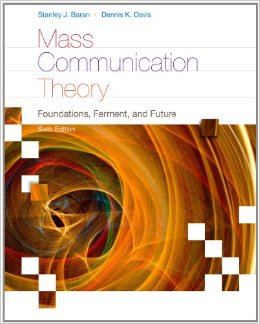Mass Communication Theory Foundations, Ferment, and Future
Review of Chaper 1:
DEFINING AND REDEFINING MASS COMMUNICATION
When an organization (Source) employs a technology as a medium to communicate with a large audience, mass communication is said to have occurred.
SCIENCE AND HUMAN BEHAVIOR
Implementation of the scientific method is difficult for those studying the social world for four reasons:
Most of the significant and interesting forms of human behavior are quite difficult to measure. How do we measure something like civic duty? Should we count the incidence of voting? Maybe a person’s decision not to vote is her personal expression of that duty. Try something a little easier, like measuring aggression in a television violence study. Can aggression be measured by counting how many times a child hits a rubber doll? Is gossiping about a neighbor an aggressive act? How do we measure an attitude (a predisposition to do something rather than an observable action)? What is three pounds of tendency to hold conservative political views or sixteen point seven millimeters of patriotism?
Human behavior is exceedingly complex. Human behavior does not easily lend itself to causal description. It is easy to identify a single factor that causes water to boil. But it has proved impossible to isolate single factors that serve as the exclusive cause of important actions of human behavior. Human behavior may simply be too complex to allow scientists to ever fully untangle the different factors that combine to cause observable actions.
Humans have goals and are self-reflexive. We do not always behave in response to something that has happened; very often we act in response to something we hope or expect will happen. Moreover, we constantly revise our goals and make highly subjective determinations about their potential for success or failure.
We want to know how things work, what makes things happen. As much as we might like to be thrilled by horror movies or science fiction films in which physical laws are continually violated, we trust the operation of these laws in our daily lives. But we often resent causal statements when they are applied to ourselves.
DEFINING THEORY
Theory Any organized set of concepts, explanations, and principles of some aspect of human experience.
POSTPOSITIVIST THEORY
This theory is based on empirical observation guided by the scientific method, but it recognizes that humans and human behavior are not as constant as elements of the physical world. The goals of postpositivist theory are explanation, prediction, and control (and in this you can see the connection between this kind of social science and the physical sciences).
HERMENEUTIC THEORY
hermeneutic theory is the study of understanding, especially through the systematic interpretation of actions or texts. Hermeneutics originally began as the study or interpretation of the Bible and other sacred works. As it evolved over the last two centuries, it maintained its commitment to the examination of “objectifications of the mind”
CRITICAL THEORY
Critical theory is openly political (therefore its axiology is aggressively value-laden). It assumes that by reorganizing society, we can give priority to the most important human values. Critical theorists study inequality and oppression. Their theories do more than observe, describe, or interpret; they criticize. Critical theories view “media as sites of (and weapons in) struggles over social, economic, symbolic, and political power (as well as struggles over control of, and access to, the media themselves)”. Critical theory’s epistemology argues that knowledge is advanced only when it serves to free people and communities from the influence of those more powerful than themselves. Its ontology, however, is a bit more complex.
NORMATIVE THEORY
Theory explaining how a media system should operate in order to conform to or realize a set of ideal social values.
EVALUATING THEORY
“No theory is good unless it permits, not rest, but the greatest work. No theory is good except on condition that one uses it to go on beyond”. In other words, good theory pushes, advances, improves the social world. There are some specific ways, however, to judge the value of the many theories.
